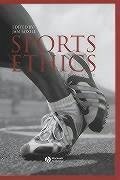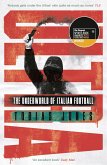The essays in this anthology examine philosophical issues such as sportsmanship, violence, cheating, drug use, racism, sexism, and gender equity. Representing the thinking of philosophers, psychologists, sociologists, coaches, and sports writers, these essays bring together a wide range of approaches to these issues. This unique collection gives the reader an understanding of the moral significance of sports. It shows how sports deeply affect as well as mirror our culture and society.
Hinweis: Dieser Artikel kann nur an eine deutsche Lieferadresse ausgeliefert werden.
Hinweis: Dieser Artikel kann nur an eine deutsche Lieferadresse ausgeliefert werden.
'Sports Ethics is a cleverly compiled anthology thatclearly addresses the main issues facing sport today. Previouslypublished classical arguments by highly respected sportphilosophers are augmented by ten new articles written specificallyfor this anthology. This is topical, well organized and insightful- an excellent addition to the literature.' John M.Charles, The College of William and Mary
'The selections in this volume give a powerful statementof the common practices in sport which negate the values that sportis supposed to instill: justice, respect, responsibility, andhonesty. In addition, Dean Smith's foreword offers a thoughtful,pragmatic point of view which often is lost in theoreticalwork.' Sharon Kay Stoll, University of Idaho
'The selections in this volume give a powerful statementof the common practices in sport which negate the values that sportis supposed to instill: justice, respect, responsibility, andhonesty. In addition, Dean Smith's foreword offers a thoughtful,pragmatic point of view which often is lost in theoreticalwork.' Sharon Kay Stoll, University of Idaho








